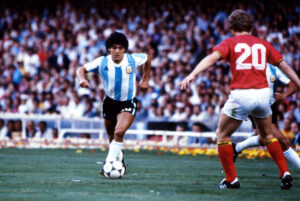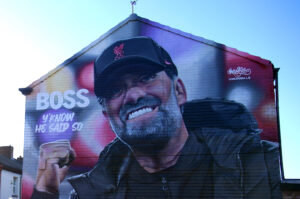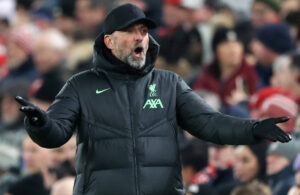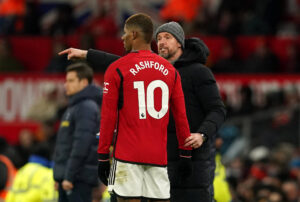In the end, Juventus were too strong. For all the effort of an exciting AS Monaco side, the mountain proved too high to climb. There was no way past the home side’s impenetrable defence at the Juventus Stadium, even for a team that has scored over 140 goals in all competitions this season.
The Rebirth of Juventus
For Massimiliano Allegri’s men, reaching a third UEFA Champions League final in two years was the culmination a team built around superb defensive organisation, midfield creativity and lethal finishing when it really counts. It is perhaps thanks to Allegri that Juventus are now such an efficient, well-drilled machine both domestically and in Europe. Yet the remarkable progress and rebirth of the Old Lady goes much further back than just Allegri.
Just five days after the euphoria of Italy’s 2006 World Cup win, news broke that arguably the country’s top side, Juventus, would be demoted to Serie B, along with a nine-point deduction, as a result of a serious match-fixing scandal. They were to be joined by Lazio and Fiorentina, who were also involved, though both had their punishments reduced to just the nine-point deduction on appeal.
Such a sudden crashing down to earth prompted stars like Patrick Vieira, Lillian Thuram, Fabio Cannavaro and Zlatan Ibrahimovic to leave Turin and pursue their careers elsewhere. Yet despite the exodus, the club were boosted by the loyalty of Alessandro Del Piero, Gianluigi Buffon, Pavel Nedved and David Trezeguet, who decided to stay and help the club gain promotion. In addition, Sebastian Giovinco and Claudio Marchisio were seen as bright prospects and were promoted to the first team.
Keeping this group of players proved pivotal as Juventus gained promotion at the first time of asking, winning Serie B and losing just four games in the process. They were guided by former player Didier Deschamps, who was determined to manage Juventus through the tough period the club was enduring. Although he succeeded in guiding the club back to Serie A, the Frenchman left two games before the end of the season.
Now back in Italy’s top flight, Juventus attempted to move forward quickly and appointed Claudio Ranieri as manager in order to do so. His first season was seen as a success as he led the club to an impressive third-place finish and as a result, qualification back into the Champions League. However, the next season (2008-09) proved a disaster for Ranieri. Juventus were well off the pace in their quest for the title, finishing ten points behind champions Inter Milan. What’s more, the club were knocked out of the Champions League by Chelsea. Consequently, Ranieri was sacked as Juve looked to push on.
The next two managerial replacements proved just as, if not more, disastrous than Ranieri himself. Ciro Ferrara and Alberto Zaccheroni both failed to make impacts, with Juventus underachieving and showing little progress when it came to challenging consistently for the title and competing in Europe. Changes had to be made.
Andrea Agnelli replaced Jean-Claude Blanc as Juventus president for the 2010-11 season and his first major decision was to make Guiseppe Marotta the club’s sporting director, luring him from Sampdoria. Although Agnelli’s first managerial appointment, Luigi Delneri, proved to be a disappointment, his next started to finally bring the success Juventus were craving for.
That man was Antonio Conte and his arrival, along with significant changes to the coaching staff in 2011, gave Juventus a new dimension. Conte integrated his three-at-the-back system into the Juventus side and the results were immediate. Not only did the energetic yet tactically astute manager deliver the Serie A title in his first season in charge, Juventus’s first title in nine years, but his side also went the entire league season unbeaten – the first team in Italy under the 38-game format to do so.
Two more league titles followed, including a record points tally of 102 in 2013-14 as the Conte domestic juggernaut rolled on. Another integral part of Juventus’s success at this time was the move from the Sadio delle Alpi to the Juventus Stadium at the start of the 2011-12 campaign. The transition saw a decrease in a capacity (69,000 to 41,254), but a significant increase in atmosphere. The new stadium was filled out far more regularly and it proved important in Juventus’s turnaround in fortunes. The Old Lady have lost just three league games in six years since their move there.
Despite the consistent success in Serie A that Conte brought back to Juventus, a problem still existed in Europe. In the 2013-14 season, Juventus failed to get out of the group stages of the Champions League as the club struggled to match their dominant domestic performances with similar displays on the European stage. The next part of the jigsaw was to fix that problem – a key factor in the appointment of Massimiliano Allegri in 2014.
The decision to appoint Allegri was initially met with apprehension due to the problems the Italian faced during his time as manager of AC Milan. In 2012-13, Allegri’s Milan earned just eight points from the same number of league matches and the Italian failed to develop the club’s young talents, such as Stephan El Shaarawy, Mattio De Sciglio and the problematic Mario Balotelli. However, Allegri managed to guide Milan to third place by the end of the season.
Allegri failed to build on that momentum the following season, though, as his side regressed to 11th in the Serie A table and 30 points off leaders Juventus by January. Consequently, Allegri was sacked. His difficulties in getting on with Milan president Silvio Berlusconi was also another revelation during his turbulent time at the San Siro.
So the anxiety upon the decision to make Allegri the new Juventus manager was understandable. Yet the risky appointment proved an inspired one. In his first season, Allegri won the double, sealing yet another Serie A title for Juventus as well as the Coppa Italia. His decision to continue with Conte’s three-at-the-back system proved integral to the success that season.
“After three years in which we have won the Scudetto each year, there was always the risk that we might rest on our previous triumphs, but the change of coach in July has paradoxically given us even more determination to prove that we are the strongest,” Giorgio Chiellini told Mediaset television in 2015. “We’re grateful to Conte for what he gave us, but our project has not stood still. It’s moved on and grown even more. At the start of the year, we lost control of games from time to time, but that’s not happening anymore.”
Although Allegri wanted to maintain the spine of the Juventus team, the Italian emphasised an improvement in attack during the summer of 2015. He wanted more flair. Therefore, he secured the signings of Mario Mandzukic from Atletico Madrid and Paulo Dybala from Palermo. What followed was an even better season for the Turin club. The Serie A title was again in the bag during 2015-16, though not without its problems. Juventus suffered a poor start to the season, slipping to 12th at one point. Yet, despite their poor early season form, Allegri’s men managed to win 24 of their next 25 league games. In addition, the domestic double was sealed thanks to a 1-0 win over Milan in the Coppa Italia final. The biggest improvement came in Europe, however, as Juventus reached the Champions League final, only to be beaten 3-1 by a rampant Barcelona side, who secured a historic treble.
Allegri’s continued search for a more dynamic attacking threat to match his side’s defensive solidarity was underlined after that defeat in Berlin. Along with the astute additions of Dani Alves and Miralem Pjanic, Juventus splashed out a club-record £75 million on striker Gonzalo Higuain from Napoli following weeks of negotiations.
Indeed, such improvements to an already strong squad have seen Juventus on the verge of a sixth consecutive Serie A title. Now another Champions League final, this time against Real Madrid in Cardiff, awaits Allegri and his team. And redemption from the final in 2015 would be the perfect way to cap off a stunning recovery from the dark days of 2006.
Juventus are back amongst Europe’s elite, and it has truly been quite a turnaround.
Main Photo:






